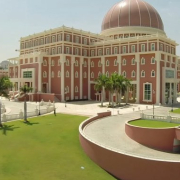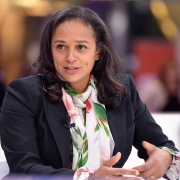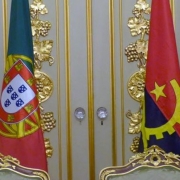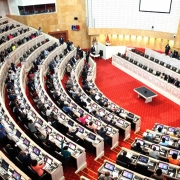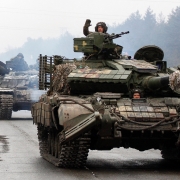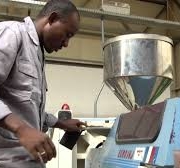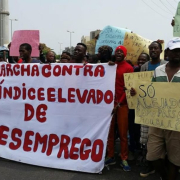Angola: new Constitution, new Republic?

REFLECTION PAPER
Current situation and anocratic regimes
In a usual situation, the agitation and tension that was felt in the months preceding the general elections of August 2022 in Angola, it would have given rise to the normality and quiet functioning of the institutions until the following electoral act occurred in 2027. However, the strong divisions that were felt and that kind of almost global strife that existed until August does not seem to decrease, creating a situation of constant aggression, without an end to the sight in the present system. Symptom of this is the recent interview given by the opposition leader to a Portuguese newspaper, which declares “neither I nor the party recognize MPLA’s victory, because we know that Unita had more votes. We heard people across the country. Society wanted us to take over the institutions, but we didn’t want chaos.[1] ”
Consequently, on the one hand, the main opposition party has assumed a policy that we will call the “double road.” Such a policy disputes government within the institutions, although not recognizing its legitimacy, also challenging the institutions themselves. The “double road” accepts that the opposition is made within institutions and outside them; In a way, institutions are seen as another instrument of a broader project of confrontation with the government. It is evident that this posture leads to a difficult manichaeism to manage and undermines any openness and respectability that is intended with the investment. The lack of respect for institutions makes everything too dependent on the will of the political decision makers and the conjuncture.
On the other hand, the government party is embarrassed to lead its announced reforms, it is as if the party were not one but two parties. A party mass is dissatisfied with the proposed changes, it wanted that João Lourenço to be just a more skilled manager than José Eduardo dos Santos, but not to introduce background reforms, another sector wants to be taken effective reforms and is bothered by the eventual slowness of these reforms. They have the notion that without a deep reformist process, Angola can become a state with no future.
There is thus a strong instability, for various reasons, in parties that form the sustainment of the political system.
The National Assembly does not seem to be a deliberative chamber of the nation’s feeling, but a mere stage of a broader dispute, becoming in a means and not an end, removing it the sovereign weight that would be inherent.
With a more frightening record the justice arises. The one who is the basic pillar of a democratic rule of law offers more doubts than certainties. In combating corruption, with honorable exceptions, the judicial system has been based on inefficiency and slowness, not already realizing where this structuring program of the state is walking. As we have already written: “It is true that the supreme court’s design contained in the 2010 Constitution helps to its dysfunctionality. In fact, the Angolan constitutional legislator wanted to make a court following the model of the US Supreme Court grafted in a judicial system of Roman-Germanic type, that is, Portuguese. Now a top court in the Portuguese, German or French judicial system has nothing to do with a top court in an Anglo-American system. They are different concepts and structures. What is asked for an American supreme court is not what one asks for a Portuguese Supreme Court. In the first case, only large and innovative law issues arrive there. It is already a kind of court of reflection, while in the second Roman-German case-the Supreme acts as a last instance of appeal for almost all cases. However, in Angola, a court was thought in the American way to operate in a Portuguese manner. Therefore, a light structure that was only dedicated to a small number of cases had to face the task of being a usual court of appeal for a myriad of cases. That could only give bad result, as it gave. In addition to the dysfunctionality of constitutional design, it has been understood that the judges of the Supreme Court do not have adequate preparation to deal with the complexities of economic and financial crime, not having throughout their career came across with these issues at the sophisticated level to which they have been appearing, which has led to some much criticized decisions and to a large procedural default.
“Beginning the country simultaneously a phase of great appeal to foreign investment, as well as betting on the fight against corruption, is well to see that a poorly designed and thought court has to be reformed and remodeled. [2]”
Overall, justice has not offered guarantees of speed and technical impartiality, and its actors have had a surprising tendency to get involved in consecutive scandals.
On the part of the population there is a timid idea, but discussed in many outside, that current institutions and political parties were designed for a war and confrontation environment, and these characteristics are in their core, and therefore are not able in dealing with a new Angola, where the central objectives are the development and well-being of the population. This means that it is considered that the “old” parties no longer correspond to the wishes and interests of the population, not offering consistent and appealing solutions. The abstention rate of the last general elections (54%) is a mirror of this situation.
A National Assembly that has become a mere-instrument-power and counterpower instrument, an inept justice and an anacronic party system, define this Angolan institutional system.
This whole situation, a little diffuse, but whose signs abound, can make the country in an ancracy. What is an ancracy? The ancracy has been defined as an unstable regime that combines elements of authoritarianism and democracy. The ancracy has an incomplete development of mechanisms of dissension and consensualization and is associated with permanent agitation or ingenability, which make the political process difficult[3]. The existence of an annocratic situation increases the likelihood[4] of a civil war. Putting the theme in another way, what it seeks to question is whether the Angolan situation is inherently unstable and can it resort to a civil war?
The answer is simple, although having two parts. No, Angola has not yet experienced an anocracy situation. However, structuring measures are required to exceed present blockages and dissatisfaction.
New Constitution and New Republic
It is necessary to create an agile state, with respected institutions, a functional public administration and a market economy with free and competitive actors, all contributing to the progress and well-being of the population.
The structures inherited from colonialism and wars must be transformed and exchanged for structures of modernity and development, taking into account the culture and history of Angola.
A new historical cycle with a new structure is critical.
The first measure is to establish a new constitution. The current 2010 Constitution is not consensual and, to some extent, is a legal misconception designed to please the personal desires of José Eduardo dos Santos. Fundamental will be to propose a new constitution, more Angolan and more protective of institutions, which marks a fresh start.
It is understood that this new constitution should address aspects as different as the possibility of separate (direct or indirect) election of the President of the Republic, giving him his own legitimacy and ensuring that the president presents himself as a national leader and not a party leader , the creation of a Second Legislative Chamber composed by the traditional authorities (allowing the introduction of different and plural voices in the legislative process, recovering African culture), the introduction of militant democracy mechanisms as the German fundamental law has (such as Karl Loewenstein[5] wrote Democracy should be able to resist those political agents who use democratic instruments to ensure the triumph of totalitarian or authoritarian projects of power, meaning that the Constitution must contain mechanisms of defense and repression of attempts to overthrow the constitutional regime, which now does not exist with sufficient strength in the Angolan Constitution). Obviously, that the reformulation of judicial power, the change in the symbology of the republic, would be other aspects of this new constitution.
A constitutional change is not enough without the organization and administration of the state. Also here the transformation project has to be comprehensive and seeking the release of colonial and Marxist models, introducing a public administration suitable for the new times. Examples may come from Asia, such as China and Singapore[6], or neighboring countries like Botswana or South Africa. The paradigm must be a merit -based administration based on effectiveness and service to the population. Of course, this implies the end of the clientelist influence on administration, deconcentration with autonomy and decision-making capacity, a completely new way of seeing the administrative procedure, not as a set of rules, but a set of good practices and goals dedicated for the common good and effectiveness.
It is evident that only a few topics are left here about advisable structural changes, according to our perspective, to transform Angola into a modern and prosperous state.
[1] Adalberto da Costa Júnior, interview to Nascer do Sol, 20-01-23
[2] CEDESA (2022). A necessária reforma do Tribunal Supremo em Angola, https://www.cedesa.pt/2022/11/24/a-necessaria-reforma-do-tribunal-supremo-em-angola/
[3] Jennifer Gandhi e James Vreeland (2008). “Political Institutions and Civil War: Unpacking Anocracy”. Journal of Conflict Solutions. 52 (3): 401–425; Patrick Regan and Sam Bell, Sam (2010). “Changing Lanes or Stuck in the Middle: Why Are Anocracies More Prone to Civil Wars?”. Political Science Quarterly. 63 (4): 747–759.
[4] Patrick Regan and Sam Bell, Sam (2010). “Changing Lanes or Stuck in the Middle: Why Are Anocracies More Prone to Civil Wars?”. Political Science Quarterly. 63 (4): 747–759.
[5] Karl Loewenstein (1937) Militant Democracy and Fundamental Rights, in: American Political Science Review 31.
[6] M. Shamsul Haque (2009), Public Administration and Public Governance in Singapore in Pan Suk Kim, ed., Public Administration and Public Governance in ASEAN Member Countries and Korea. Seoul: Daeyoung Moonhwasa Publishing Company, 2009. pp.246-271.
